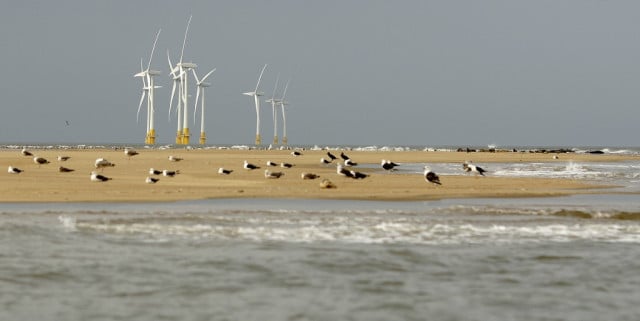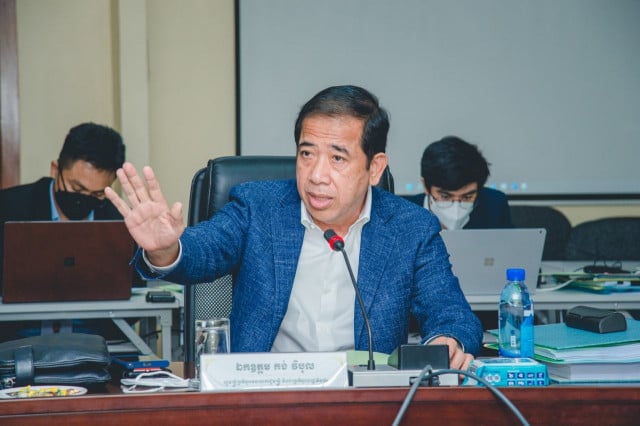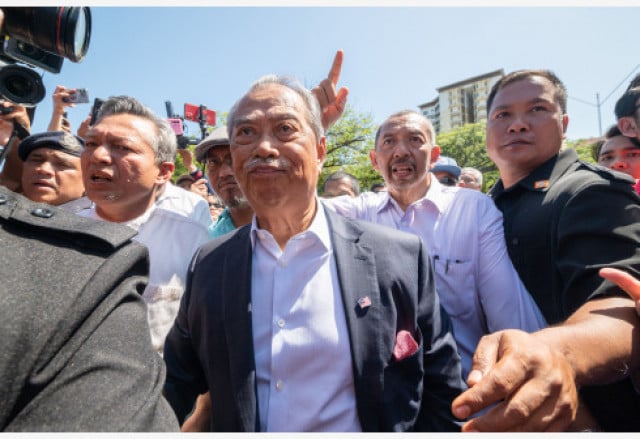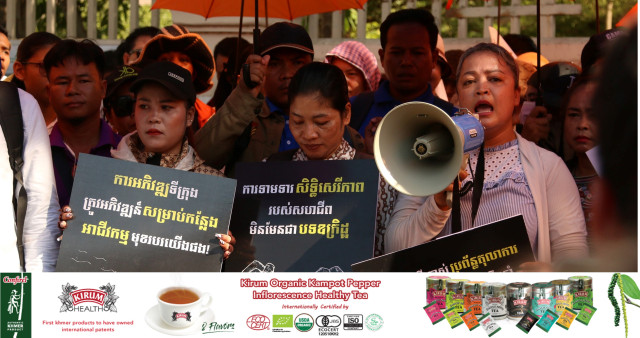Bokator Documentary Emerges Triumphant in Battle of Finances
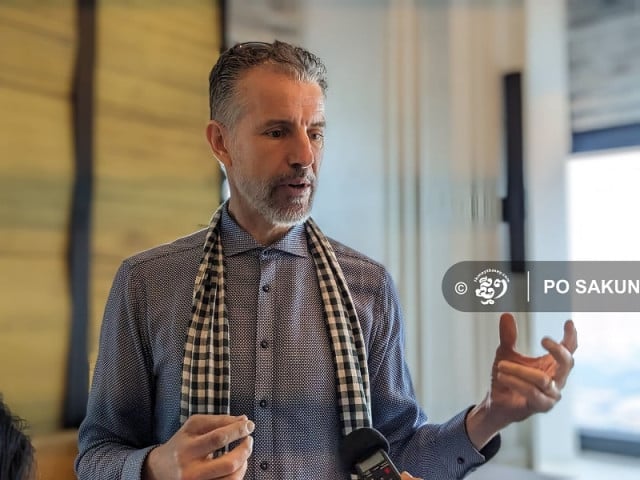
- By Po Sakun
- July 29, 2023 11:00 AM
PHNOM PENH – Canadian documentary maker Mark Bochler spent about $200,000 of his own money making the multiple award-winning “Surviving Bokator” film about Cambodia’s culture and the sport’s revival.
Covering 13 years of the sport’s development, Mark said the film is unique among martial arts of other countries. It has won 14 awards so far.
The historic and cultural film was used in UNESCO’s story as a reference for their research during their listing of Ku n Lbokator” as thepart of world heritage in November last year, which was a big success for the film.
“We used UNESCO’s stories as references in our films before, but now our film is used in UNESCO’s stories,” Mark said.
The $175,000 to $200,000 he spent making the film excluded the budget for promotion and screening. There was no financing before making the film.
He only sought sponsor when he went back to his home country of Canada, which was different from making other documentaries, where finance would be needed first.
One challenge was seeking supporting finance and hiring the film crew, which was based on the few resources Mark had in hand.
He and his partners faced difficulties as the storyline got bigger but he eventually managed to complete the film.
“Seeking finance was a challenge. We needed it from the oknha (tycoons) who could provide us with the money,” he said.
“Even seeking the sponsor for screening the film was also difficult. We spent four months trying to find one. Because of the Sankranta and the 32nd SEA Games, most of the sponsors already spent on the events.
“There was never a plan for profit, even now. However, we also don’t want to lose our money. If the film is successful and we have the money to pay the bills, I think it is enough for me.”
Editing was the hardest process in making the film. He worked with people who had never been to Cambodia or Southeast Asia because he wanted it to be fresh for the editors and to make the film as interesting as possible.
However, the process was frustrating. Mark went back to Canada and hired three other editing teams but stopped working with them as the editing was not what he wanted. Mark then hired another editing team.
The documentary took 400 hours to film and had 12 characters. The first edited version was 300 hours, but Mark narrowed the story down to 97 minutes.
“I didn’t know what’s in there, really. It was full of incomplete stories,” he said.
“Originally, we tried to follow the Bokator story. However, we went back to the original footage and fleshed out a bigger story and continued filming with the hopes that there was a journey we’d continue.
“The story was way too long, so we started to narrow things down, ending up with one master with two supporting students and a few others around that,” Mark said.
Mark, who does not know any martial arts, has enjoyed learning about cultures. One Khmer traditional martial art characteristic that interested him was how the techniques were based on the 12 skills of animals’ fighting and protecting themselves.
He said the world had started to lose such traditions three thousand years ago.
“I love cultures, so that’s the main reason that I started this film. It’s my fascination and my interest in culture as well as my personal quest for knowledge for growth. Filming the Bokator revival was an opportunity and a source of pride,” he said.
The martial art was born in a country with amazing cultures, including dances and other activities. “For me, it is an interesting story because it is about a culture revival,” he said.
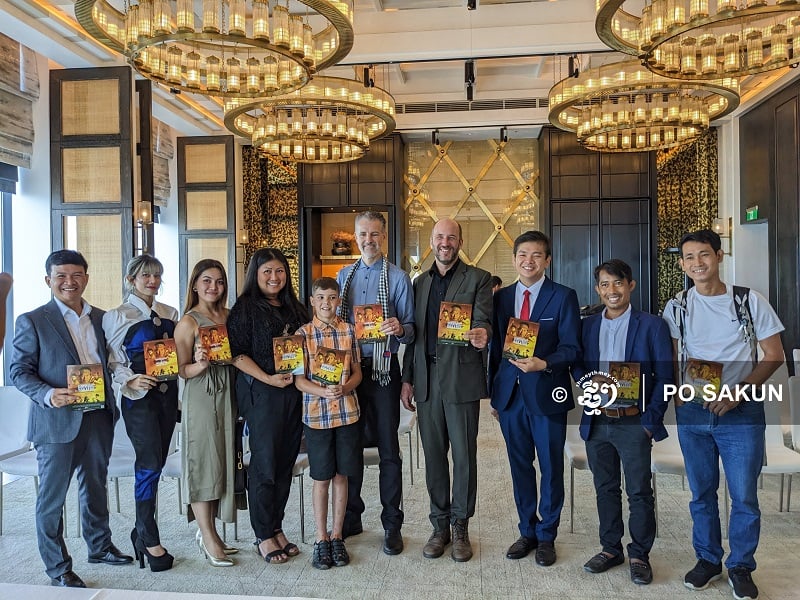
Not a negativity but an experience
Mark said the team did not encounter any negative times during filming but they faced a small misunderstanding. Mark considered it an experience because it happened in every workplace.
For a scene where all the masters appeared to discuss with the grandmaster to solve problems, Mark had arranged two videographers and two microphone holders. However, a videographer did not bring the camera, thinking that it would be provided at the stage area.
The situation had no negative effect on the process, but he was frustrated. Such problems happened everywhere.
“I realized that I was the outsider, a foreign director who doesn’t speak Khmer. I always need help, so I have to admit that. Everything doesn’t happen the way I planned. That’s life, and it requires me to be patient,” he said.
“If anything, I take the responsibility because I am the director. If we have a project, we have to have a good community with the team. If there’s a miscommunication, it’ll be still my responsibility.”
Good memories in the Bokator motherland
The director also gained many good memories. “Every time I came to Cambodia, I felt warm, like coming home. I felt relaxed. I felt like anything can happen. I felt like I can achieve many things,” he said.
“There are many stories around us, but sometimes it’s easier for foreigners to get interested in these stories because they are all new.”
The documentary covers from 2010 to 2023, though filming did not take that long. It ended during the 32nd SEA Games where Bokator became one of the disciplines.
“Surviving Bokator” also focuses on emotional traumas and treatment. It covers many topics and is not only for Cambodians and people practicing the sport.
Mark said it reflects on t young people’s strengths and shows the efforts of the grandmaster San Kim Sean and other Bokator masters in reviving this martial art.
Mark grew up in Toronto, where there is a diversity of cultures. Interested in cultures, he came to Cambodia in 2010 and found out about Bokator’s revival San Kim Sean.
Having learned about the grandmaster’s life, the director realized that the martial art was a part of the Khmer Empire, sculptured and painted on the walls of Angkor Wat.
He then started digging into the history related to the Khmer Rouge regime and its cultural damage.
The film has won 14 awards, including Best Sport Documentary from the Bangkok International Documentary Festival, the Best Documentary from the Liverpool International Theatre Festival, the Best Editing from the Paladino D’Oro Sport Film Festival, the Best Documentary / Best Documentary Director from the London Lonely Wolf International Film Festival, the Best Producer from the Vegas Movie Awards, the Mention d'Honneur Award from the World FICTS Festival of Cinema Television in Sport Culture, the Award of Merit from the IndieFest Film Awards, the Exceptional Merit from Docs Without Borders Festival, the Best Documentary from the European Cinematography Award, the Best First Time Director from the Global Film Festival Awards Los Angeles, the Platinum Winner from the NYC Indie Film Awards, the Best Cinematography Feature Film from the Asian Cinematography Award, and the Golden Award Winner from the Asia Pacific Awards.
Originally written in Khmer for ThmeyThmey, this story was translated by Meng Seavmey for Cambodianess.






